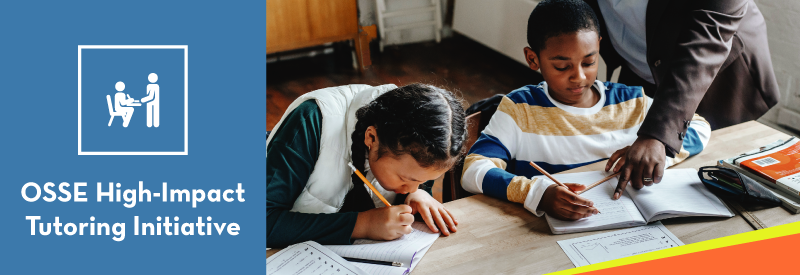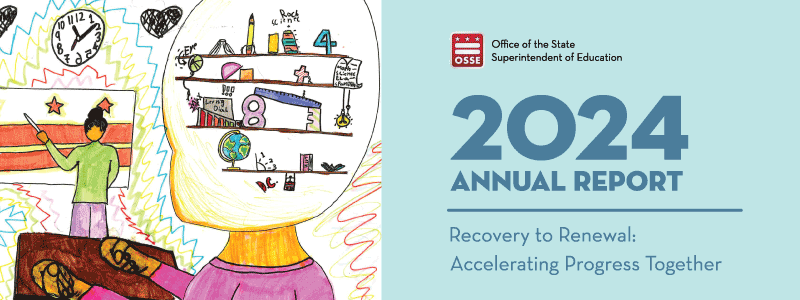Supporting Students with Disabilities
Our professional learning series launched in February and the spring 2024 cohort centered on key knowledge and skills needed to serve students with disabilities. These cohort programs include asynchronous online coursework hosted on OSSE’s LMS platform.
- 63 educators representing 11 LEAs enrolled in Early Childhood cohort
- 42 educators representing 12 LEAs enrolled in Support Staff cohort
- 25 educators, representing five LEAs enrolled in the Special Education Endorsement Recovery Initiative (SEERI) cohort
Through a $1.5 million investment over three years, we support the DC Special Education Hub through plain- language, multilingual resources and 1:1 assistance for students with disabilities. The Hub launched a six-video Family Empowerment Series to help clarify special education and create an accessible bridge for caregivers, families, educators, and students with disabilities. An overwhelming majority of families – 97 percent – who received 1:1 support or training from the Hub reported increased skills, knowledge and confidence to resolve their issue.

High-Impact Tutoring (HIT)
In March, we welcomed an audience of more than 200 people, and special guest Mayor Muriel E. Bowser to the Catholic University of America for the first-ever DC High-Impact
Tutoring Summit. Held in partnership with CityTutor DC, the summit included a plenary discussing the value of HIT for DC schools and students, and break-out sessions led by DC’s coalition of tutoring providers, local universities, community-based organizations, and educators. The in- person summit provided an opportunity to celebrate the progress of HIT in the District and discuss efforts to support its sustainability.
A large body of research demonstrates that HIT is the most effective intervention to accelerate student learning, especially for those who are furthest from opportunity. During our two full years of scaling and continuously improving HIT programs, we see early indications that students in the District are also benefiting from this time- tested, evidence-based support.
Academic Achievement
Students who receive HIT are demonstrating academic progress. A formal study of OSSE- funded HIT programs, led by Stanford University’s National Student Support Accelerator (NSSA), showed that participating students reduced the academic performance gap between themselves and their peers over the course of the school year on most of the analyzed standardized interim assessments. Our internal analysis of DC CAPE statewide assessment scores indicated that economically disadvantaged students who participated in HIT outpaced the growth of their non-tutored peers in both math and English language arts.
Student Attendance
Students must be in school to receive the full benefits of their education. In an effort to provide greater levels of transparency for our families and the community, we publish validated attendance data three times a year. Our midyear attendance brief showed that from July 10, 2023 – March 1, 2024 that chronic absenteeism decreased by percent and chronic truancy decreased by 5.2 percent, compared to the same timeframe last school year.
HIT is one intervention that has had a demonstrated impact on student in-school attendance. The NSSA’s analysis of HIT programs in the District during the 2022-23 and 2023-24 school years concluded that elementary and middle school students were more likely to attend school on days that they had a tutoring session scheduled. The effects were greatest for students who attended tutoring that was scheduled during the school day, rather than after school.
- Elementary school students were 1.2 percent more likely to attend school on days that HIT sessions were scheduled in SY2022-23 and 1 percent more likely to attend school in SY2023-24.
- Middle school students were 1.8 percent more likely to attend school on days that HIT sessions were scheduled in SY2022-23 and 0.5 percent more likely to attend school in SY2023-24.



